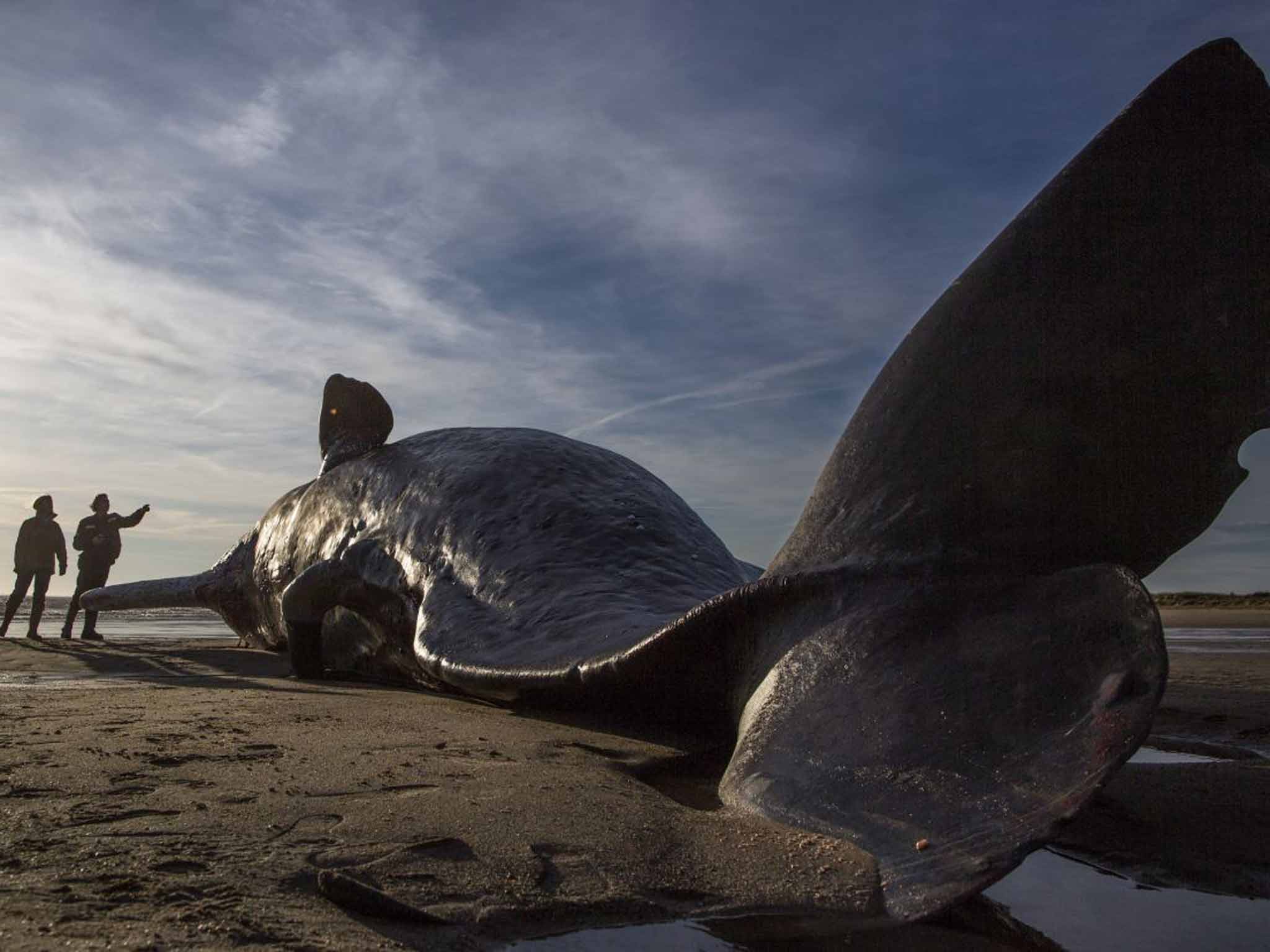How five stranded whales have captivated and saddened onlookers in equal measure
Ten years after a stray whale swam up the Thames, five more became beached on our east coast. Dean Kirby examines our anguish over these leviathans (and their wonky sense of direction)

Your support helps us to tell the story
From reproductive rights to climate change to Big Tech, The Independent is on the ground when the story is developing. Whether it's investigating the financials of Elon Musk's pro-Trump PAC or producing our latest documentary, 'The A Word', which shines a light on the American women fighting for reproductive rights, we know how important it is to parse out the facts from the messaging.
At such a critical moment in US history, we need reporters on the ground. Your donation allows us to keep sending journalists to speak to both sides of the story.
The Independent is trusted by Americans across the entire political spectrum. And unlike many other quality news outlets, we choose not to lock Americans out of our reporting and analysis with paywalls. We believe quality journalism should be available to everyone, paid for by those who can afford it.
Your support makes all the difference.They are among the most enigmatic creatures of the ocean, the leviathans of the deep. So it's unsurprising that the sight of whales stranded on British beaches has prompted an outpouring of wonderment, angst and even grief.
A decade ago, the sad death of a northern bottlenose in the River Thames sparked hysteria and inspired a 10-year anniversary march just last week. Now, crowds are gathering on the beaches of Lincolnshire and Norfolk to look in wonder upon – and take selfies with – the bodies of five giant sperm whales that washed ashore in a rare mass stranding at the weekend.
“People have such a fascination with whales,” says Rob Deaville, manager of Britain's cetacean stranding investigation programme, who spoke to The Independent after examining the bodies of the beached whales yesterday. “We didn't used to be this benign as a country. We used to be a nation of whalers, but have gone from there to being a nation of conservationists. I've been on the beach today and there are lots of people there taking pictures of these amazing leviathans and even bringing their children. People want to see them and I get that completely. They are creatures that they would never usually see and may never get to see again in their lifetime.”
The magnificent, sleek sperm whale was the inspiration behind Herman Melville's classic novel Moby-Dick and was recently brought to the attention of cinema-goers in Ron Howard's whaling film, In the Heart of the Sea. The mass stranding of the five juvenile males off the cost of Britain comes after a dozen others, thought to be from the same pod, were also stranded on beaches in Germany and the Netherlands earlier this month.
“I think there's no more freighted symbol of the disconnection between human and natural history than the whale,” says author and whale expert Philip Hoare. “It straddles creation myth, industrial resource, and environmental emblem. The psychic shift between using whales... and seeing them as a symbol of a threatened world lodges their shape in our collective culture. They are huge but helpless, beautiful but strange, intelligent yet innocent. We recreate them in our own selves, unable to resist anthropomorphising them, even as we know their fates lie in our hands.”
While female sperm whales tend to remain in tropical waters all year round, juvenile males migrate northwards to the Arctic and sub-Arctic waters of Norway, Iceland and the British Isles. Deavillle says the whales may have been chasing squid, when they entered the shallow waters of the southern part of the North Sea. Evidence from the bodies suggests they were hungry and dehydrated. Once beached, their internal organs start to collapse and fail.
“The gently sloping seabed off the coast can make it very difficult for them to navigate using sonar,” adds Dr Peter Evans, the director of the Sea Watch Foundation.“They are very social creatures and, if one or two get into difficulties, others may follow their distress call.”
Mass strandings are rare but they have been occurring off the British Isles for centuries. In 1762, more than 27 whales were found scattered across North Sea coasts. Eleven whales beached at Orkney in 1994 and another six at Cruden Bay in Grampian in 1996. Investigators will now seek to determine exactly how the whales came to enter our waters. “Some conservation groups have expressed concern that this could be the result of behavioural disturbance and disorientation from the use of active sonar, says Dr Evans . ”However, in this case... it is not the most plausible reason.“
He adds: “Most people never get to glimpse a sperm whale. They live in very deep waters far out to sea. They are the gentle giants of the ocean, they are intelligent and they are very social creatures. It's very sad when you see something like this happening... because there is nothing you can do to help.”
Join our commenting forum
Join thought-provoking conversations, follow other Independent readers and see their replies
Comments